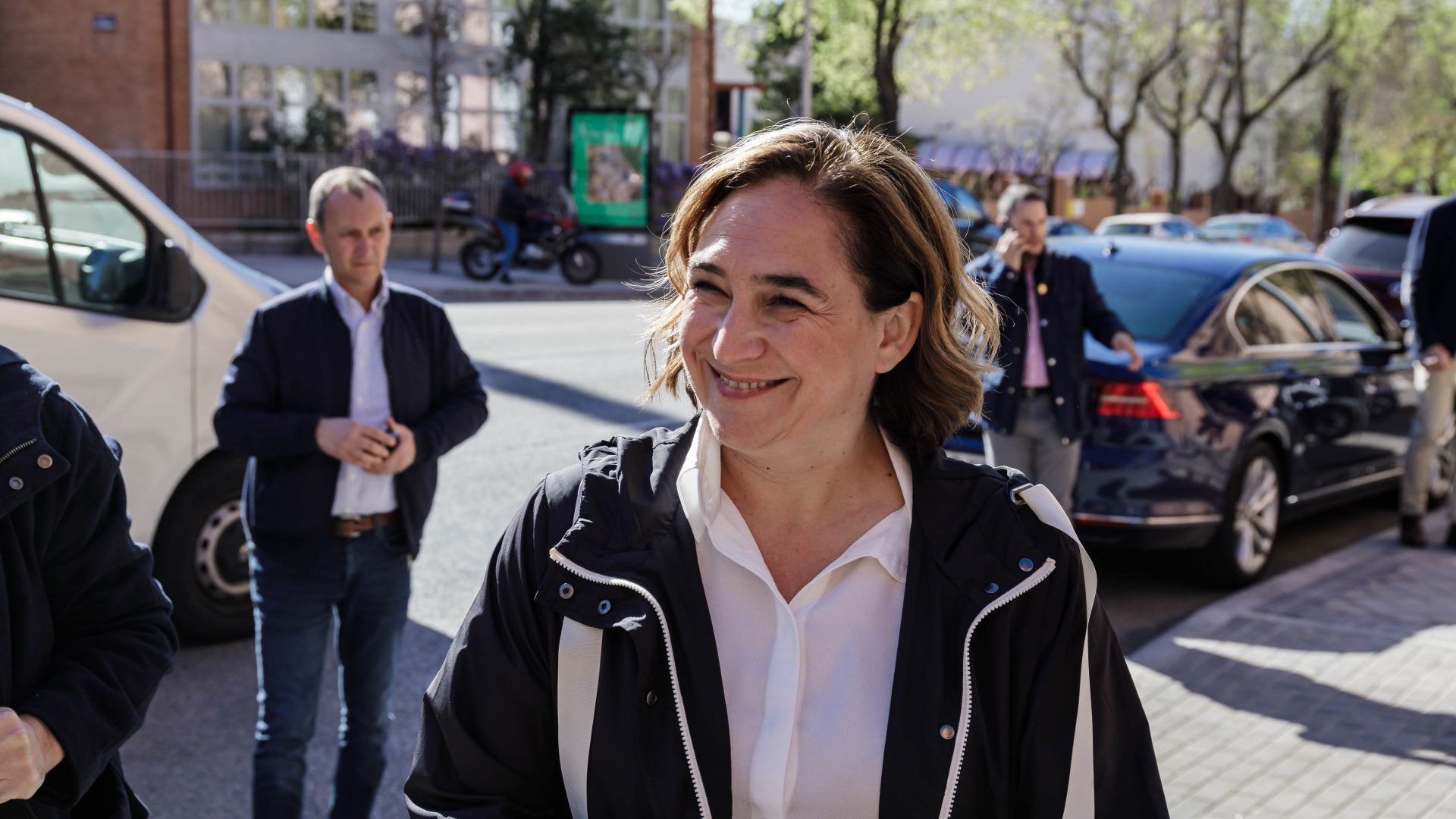Limiting the number of tourists, reducing the number of cruise ships and putting a stop to the construction of a new runway – these are just some of the plans that Barcelona’s mayor Ada Colau has for the Catalan capital.
One of Europe’s most popular city break destinations, Barcelona has had a problem with over-tourism for around the last seven years. In 2019, the city experienced a record breaking year, welcoming a total of 11.9 million visitors. Although numbers dropped during the pandemic, they didn’t take long to bounce back, and in 2022 Barcelona had a total of 9.7 million tourists.
Visitors surge down the city’s famed La Rambla street, crowd the local Boqueria market, take over the beaches, create blockages down the narrow streets of the Ciutat Vella (Old Town) and price locals out of homes in central areas.
With a population of just 1.65 million, tourists can often outnumber residents, especially during the high summer season. In the past, locals haven’t hidden their anger at this, with “tourists go home” graffiti scribbled across the walls of the winding cobbled streets.
Colau, who is running for her third term in office, recently indicated that Barcelona was reaching its maximum capacity and talked about putting limits on tourist numbers.
Barcelona “cannot take infinite numbers of tourists,” she said in an interview with the Times, in which she explained that her city is located between mountains and sea and that space is limited. “There has to be a sense of limits and order. We need homes. We need residents to live in the centre”.
In May, Barcelona goes to the polls to decide who the next city mayor should be. Colau has been in power now for eight years and her reign has been turbulent.
The latest polls show that one of her rivals Xavier Trias, Barcelona’s former mayor from 2011 to 2015, is currently just ahead with 22 percent of the votes, while Colau remains in third place with 17.8 percent. Housing and tourism will be at the centre of the electoral debate.
Barcelona is not the only Spanish destination trying to limit visitors. In early February 2023, the government of the Balearic Islands indicated it wanted to put a cap on the number of visitors to the popular islands, only allowing 16.5 million per year. However, only a few days later they backtracked, saying that “last year’s figures shouldn’t be exceeded,” and that they needed to study ways to reduce numbers.
Even though Colau hasn’t yet put a cap on tourist numbers, her current aim is to make sure visitor numbers stop growing. One way to do this is to restrict the number of cruise ships that visit the city. In a recent interview with Betevé, Barcelona’s public television station, she said “we are very worried as a city” about the pressures brought by visiting cruise ships.
Barcelona introduced a new low emissions zone in 2020 and Colau said that she cannot ask the citizens of Barcelona to reduce the number of cars if there’s going to be an unlimited growth in the number of cruise ships, which create significant pollution.
This is not the first time Colau has hit out against cruises, back in June 2022 she said: “Forty percent of cruise ships stop for four hours. Nothing is returned to the city and thousands of tourists disembark, creating serious traffic problems – and then leave. It is an industry we have to limit, as well as its impact on the environment and on the residents of Ciutat Vella.”
The City Council has insisted that the number of cruise passengers arriving in Barcelona this summer be limited to 200,000, half of what is currently planned for 2023. In 2019, 3.1 million passengers arrived on cruises.
Colau is also pushing back against the proposed expansion of the city’s airport, which includes a new sea runway. In 2021, there was a €1.7 billion investment plan to expand Barcelona’s El Prat airport, increasing passenger numbers from 55 million to 70 million a year. Spain, however, suspended the project after a lack of support from the Catalan government, as well as opposition from Colau and the City Council.
More recently, in February 2023, another proposal was added – a new 3,400 metre-long runway running one nautical mile out to sea at a cost of €2.1 billion.
Colau has said the plan is “not viable or sustainable and is contrary to common sense”. She has argued that the €2.1 billion would better be spent on internal rail connections.
There has been great controversy over the airport expansion, with the Barcelona City Council and many environmental activists firmly against it. Not only would it bring an increase in passenger numbers but it would also harm the wetland area that currently surrounds the airport. Environmentalists also say that CO2 emissions would rise by a minimum of 33 per cent, which would exceed the Catalan government’s climate targets.
But it’s not just proposals and plans that Colau is trying to change to help curb the number of tourists in the city. In the past she has limited the number of hotel beds by introducing rules on the number of hotels that can be constructed and by restricting the number of tourist licences given to Airbnb style accommodation.
The City Council has also issued a new decree, coming into force from March to September 2023, to limit the number and size of tour groups allowed into the Old Town.
This is in addition to increasing the tourist tax for 2023. The amount currently depends on what type of accommodation visitors stay in. For example, those who stay in tourist apartments must pay €4 per night with €2.25 going to the Catalan region and €1.75 to the city. Those who stay in luxury five-star hotels also pay €1.75 to the city, but €3.50 per night to the region.
After April 1st 2023, visitors to Barcelona will have to pay €2.75 to the city instead – an increase of €1 per night. That means that come spring, guests staying in five-star accommodation will pay a total of €6.75 per night. This equals an extra €47.25 per person for a week’s stay.
Of course, not everyone agrees with Colau and her methods. Critics and many businesses say that she is against enterprise and growth. While many residents enjoyed the city during the pandemic, free from its hordes of visitors, businesses that relied on tourism suffered and many have a new-found appreciation for the visitors who support their city.
According to a recent survey on problems within Barcelona, in 2017 nearly 16 percent of inhabitants said tourism was the main challenge for the city, but in 2022, less than 2.5 percent considered it the main problem. A team of researchers from the Universitat Oberta de Catalunya (UOC) also discovered that 62 percent of Barcelona residents support tourism.
A former housing activist, Colau has made some controversial moves during her eight years in office, including being against the Mobile World Congress, which Barcelona has hosted for the past 16 years and which has brought in some €5.3 billion, plus work for over 128,000 people. But even now, she is still making waves.
Colau provoked further controversy recently by temporarily cutting ties with Israel and rescinding Barcelona’s twin city relationship with Tel Aviv, announcing in February that, “We will suspend the relationship between Barcelona City Council and the state of Israel and all of its public administrations”.
In a letter to the Israeli prime minister, Benjamin Netanyahu, she said that any agreements would be suspended “until Israeli authorities put an end to the systematic violation of the people of Palestine’s human rights”.
Barcelona has been twinned with Tel Aviv and Gaza since 1998.
While more than 50 cultural figures from around the world praised the move in an open letter, many have also hit back at the mayor, including Barcelona’s Jewish community, who accused her of being anti-Semitic. The Spanish federation of Jewish communities also condemned the move.
Speaking at an event in Barcelona recently, Spanish Foreign Minister José Manuel Albares called it a “unilateral decision, and I understand an almost personal decision, by the mayor”.
“I do not believe that anything good is achieved by suspending, cutting, expelling,” he concluded.



